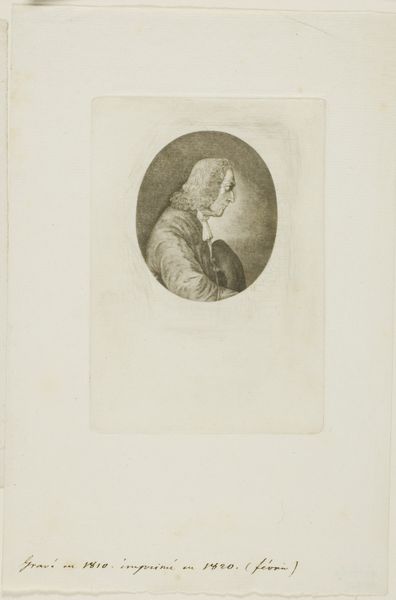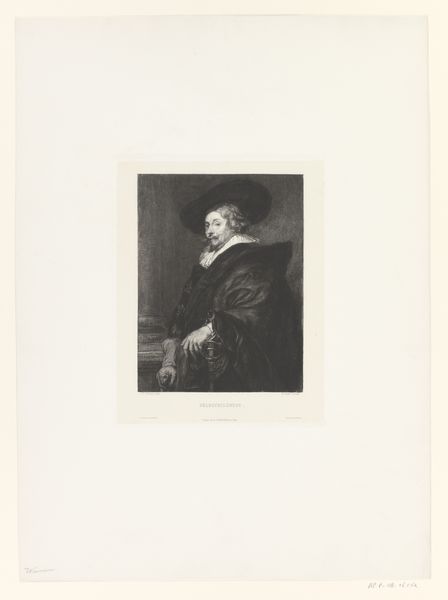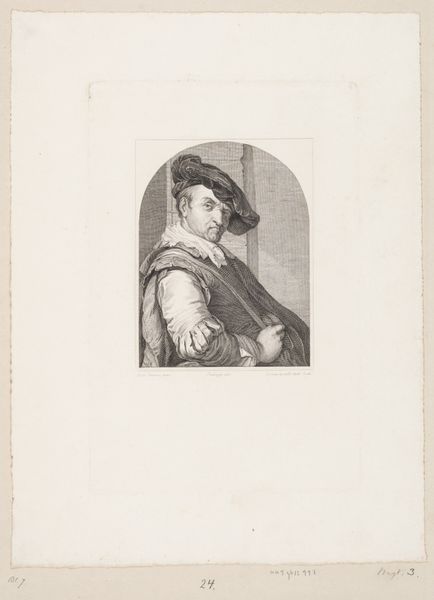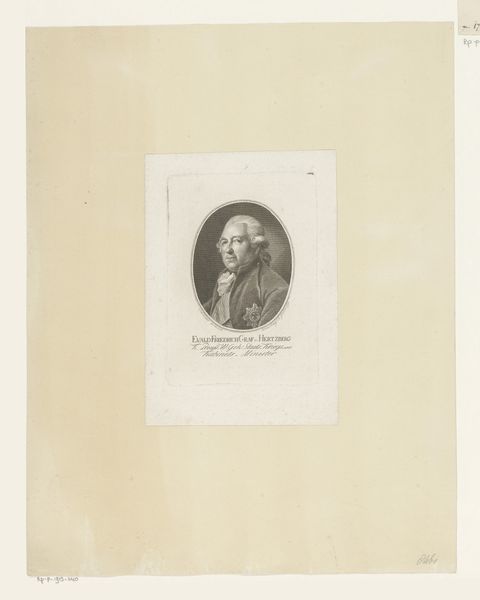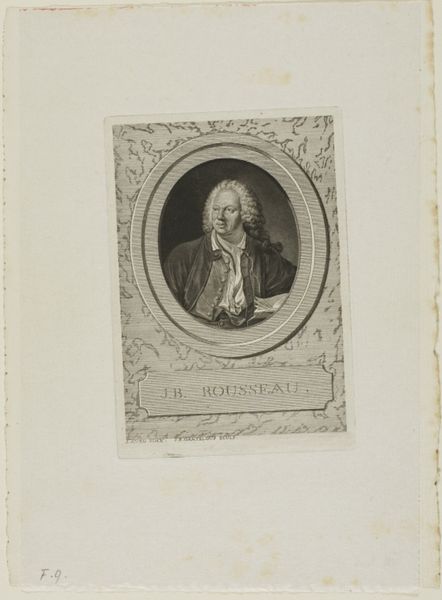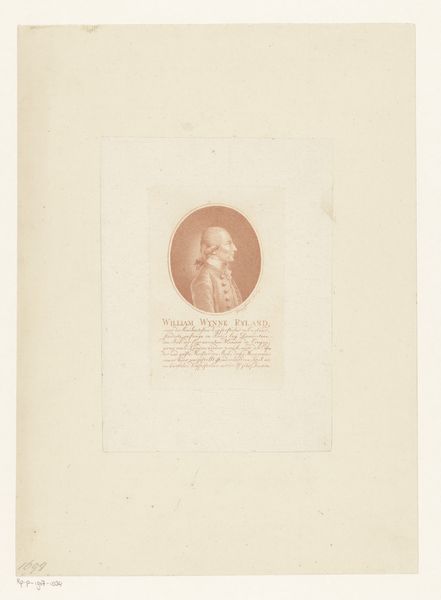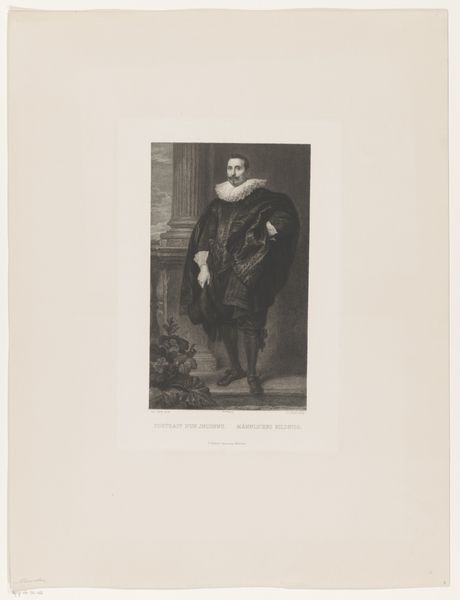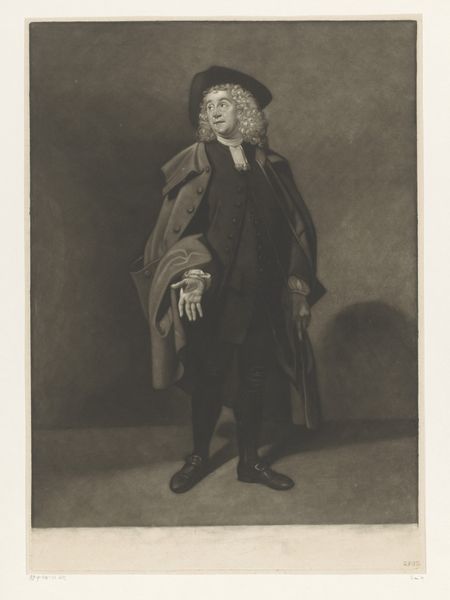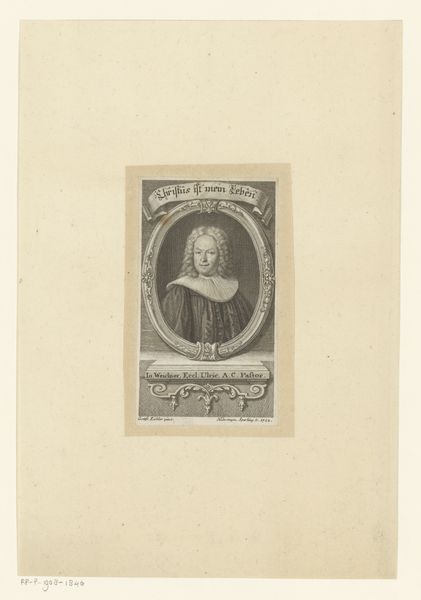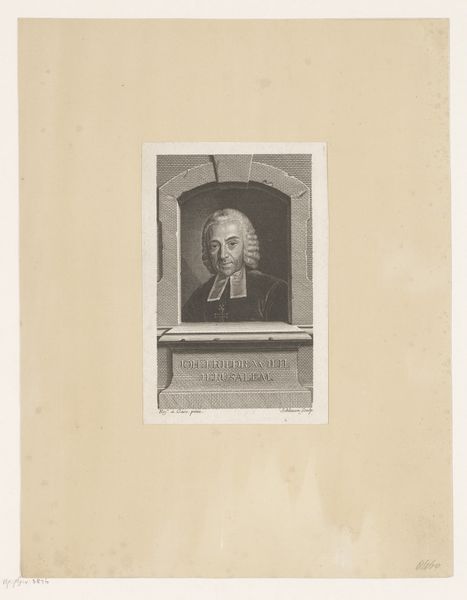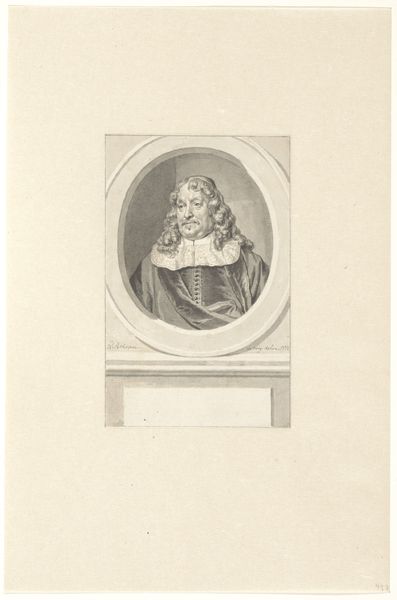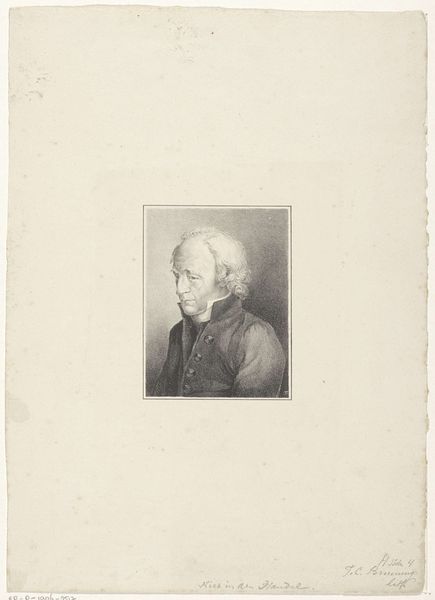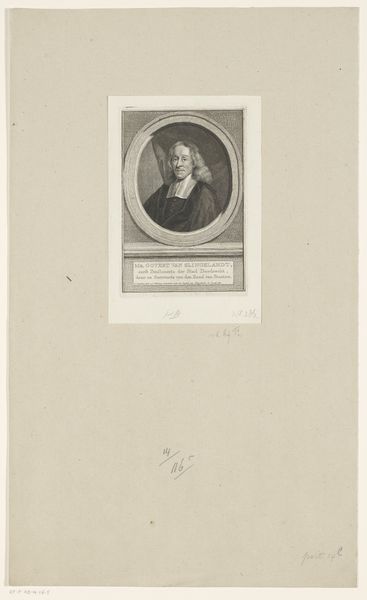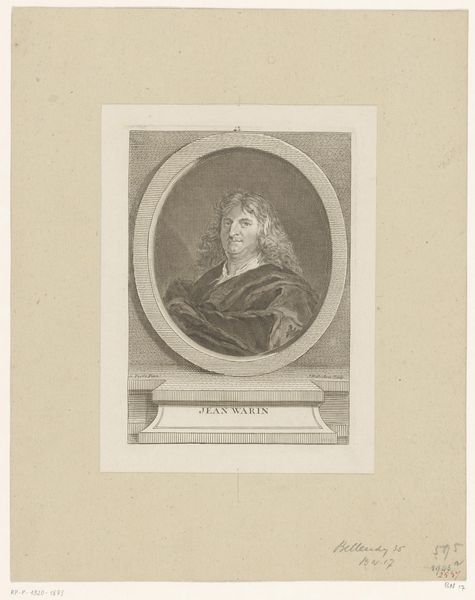
etching
#
portrait
#
dutch-golden-age
#
etching
#
figuration
#
history-painting
#
realism
Dimensions: height 267 mm, width 193 mm
Copyright: Rijks Museum: Open Domain
Editor: So, we're looking at "Portret van Andries de Graeff," an etching by William Unger, created sometime between 1847 and 1932. The man portrayed seems rather imposing and self-assured. What strikes you about this portrait? Curator: It's like stepping back in time, isn't it? Unger captured not just a likeness but a sense of the Dutch Golden Age, a time when merchants were kings and artists chronicled their ascent. The etching process itself adds a layer of gravitas – each line, a deliberate stroke, mirroring the subject's calculated stance. Does the gaze capture your attention? Editor: Yes, there is a sense of command there. What's interesting to me is that it’s made much later than the Golden Age itself. Does Unger romanticize this historical period? Curator: A very interesting point. Unger could certainly be engaging in a bit of historical romanticism. It's almost like he’s saying, "Remember when…?" – perhaps longing for a perceived past glory, especially during a period of significant social and political change in Europe. And that subdued realism serves the air of reverence well, don’t you think? What do you imagine De Graeff's story to be? Editor: I wonder about his place in history. And it also makes me consider the lasting appeal of the Dutch Golden Age as an artistic and cultural touchstone. Thank you! Curator: Indeed. It reminds us how the echoes of the past continue to resonate, shaping our present perspectives. Thanks to you too; food for thought!
Comments
No comments
Be the first to comment and join the conversation on the ultimate creative platform.
